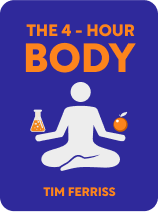

This article is an excerpt from the Shortform book guide to "The 4-Hour Body" by Timothy Ferriss. Shortform has the world's best summaries and analyses of books you should be reading.
Like this article? Sign up for a free trial here .
Do you want to improve your sperm count? What strategies can The 4-Hour Body offer?
In The 4-Hour Body, men’s sexual health focuses in part on sperm count. If you improve sperm count, it improves your overall sexual health.
Read more about how to improve sperm count while also considering the backup option of storing sperm.
Why You Might Want to Improve Sperm Count
In addition to testosterone levels, sperm count is an important measure of men’s sexual health. Sperm count is judged on three factors:
- Number: The total count of sperm.
- Shape: The count of how many sperm are shaped properly (like a tadpole).
- Motility: The count of how many sperm can swim forward.
All three factors are important—for example, if the number of sperm is high but none of them can swim, fertility is decreased.
Low sperm count is a problem for many men, including at one point, the author, and the solution is simple—stop carrying your cell phone in your pocket. Studies have shown that the radio frequency electro-magnetic fields (RF-EMF) produced by cell phones decrease serum testosterone and motile sperm in rats. The author found that the RF-EMF was affecting his sperm too.
The author started carrying his phone in an armband, so it would be further from his sperm, and only put it in his pocket when it was off. After 11 weeks, his motile sperm count had increased by a factor of three. (He was also doing some other body experiments at the same time that could also improve sperm count, such as cold treatments and eating Brazil nuts for selenium, but he suspects that moving his cell phone was the major factor.)
Why You Should Store Sperm
Even if you stop carrying your cell phone in your pocket and improve your sperm count, there are still good reasons to store sperm. The author recommends it for several reasons:
- It’s hard to avoid things that are bad for your sperm count and even if you improve sperm count it may not be enough. For example, preservatives are bad for your sperm count, and many foods have them.
- Medical procedures, such as chemotherapy, can cause infertility.
- Even if you think you don’t want kids, you might change your mind.
- The only downside is the cost.
There are six steps to storing sperm:
- Find a local sperm bank and make an appointment.
- At the initial appointment, you’ll probably be tested for STIs and you’ll learn more about the process. Initial appointments typically cost between $100-200.
- Plan to make six deposits for every child you hope to have. You need six because 50% or more of your sperm doesn’t survive the freezing process, and it can take a long time and several attempts for a woman to get pregnant. Each deposit costs $150-200.
- Don’t ejaculate within 48 hours of each deposit but do ejaculate at least 72 hours before. This will create the ideal ratio of live sperm to dead sperm and improve sperm count.
- Expect challenges. When depositing, if your experience is anything like the author’s, you’ll be shown to a private room and given porn DVDs. It will probably be more difficult than you think to ejaculate.
- Find somewhere to store the sperm. Usually, the bank where you made the deposits will have storage available. This costs $300-600 per year.

———End of Preview———
Like what you just read? Read the rest of the world's best book summary and analysis of Timothy Ferriss's "The 4-Hour Body" at Shortform .
Here's what you'll find in our full The 4-Hour Body summary :
- How to do the least amount you need to do for the results you want
- Why you need a cheat day in your diet
- How to improve everything about your body, including sleep, sex, and longevity






